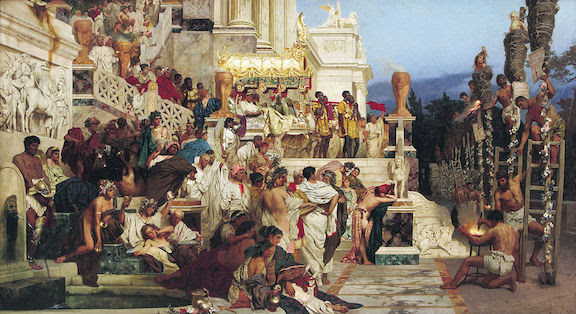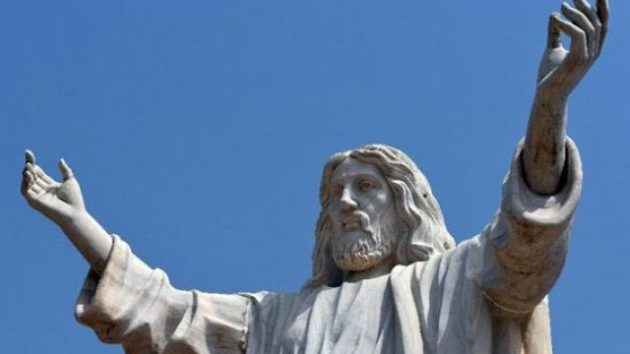From Civil Religion to “Hate”
David Carlin writes that the new wave of intolerance, whether from the KKK or antifa, calls for a revival of our Judeo-Christian national religion. If not, get ready for the worst.
Although the United States has never had an official religion, it has traditionally been, in an informal and unofficial way, a Christian nation; more specifically, a Protestant nation. A virtually universal Protestantism was one of the chief factors, in addition to language and common law, which unified British America prior to the Revolution. After the Revolution this near-universal Protestantism helped make it relatively easy to unite the thirteen states into a single federal state.
It is true that many of these early American “Protestants” were un-churched, especially in the less thickly settled regions of the country. All the same, they thought of themselves as Protestant Christians. No matter how uninstructed in the contents of the Bible many of them may have been, they regarded the Bible as the great authority in religion. And they deplored the Catholic Church, as did all good Protestants (except for a small number of High Church Anglicans).
When in the course of the 19th and early 20th centuries great numbers of Catholics flowed into America from Ireland, Germany, Italy, Quebec, and the Slavic countries, the purely Protestant nature of the USA was compromised; and it was further compromised when many Jews came in from the Russian Empire, joining the smaller number of Jews who had come in from Germany in the mid-19th century.
 As the newcomers were gradually integrated into the American way of life, the nation continued to have an informal and unofficial religion. This time it was no longer pure Protestantism. Instead it was a “Judeo-Christian” religion, a common denominator religion based on those faith-and-morality elements that Protestants, Catholics, and Jews agreed on. But this Judeo-Christian faith was much more Protestant in tone than it was Catholic or Jewish. This Protestant tone was especially notable in its belief in the right of private judgment.
As the newcomers were gradually integrated into the American way of life, the nation continued to have an informal and unofficial religion. This time it was no longer pure Protestantism. Instead it was a “Judeo-Christian” religion, a common denominator religion based on those faith-and-morality elements that Protestants, Catholics, and Jews agreed on. But this Judeo-Christian faith was much more Protestant in tone than it was Catholic or Jewish. This Protestant tone was especially notable in its belief in the right of private judgment.
Both Catholicism and Judaism were religions of authority, not of private judgment. In Catholicism, the authority was that of popes and bishops and general councils. In Judaism it was that of the rabbinical tradition. Protestantism too had an authority: the Bible, the whole Bible, and nothing but the Bible.
But there was no authoritative interpreter of the Bible. That was up to the private judgment of every man and woman. In America, Catholics and Jews adopted this great Protestant principle of private judgment. Among Jews, rabbis lost much of their teaching authority. Among Catholics, bishops lost much of their teaching authority.
Click here to read the rest of Professor Carlin’s column . . .
David Carlin
David Carlin is professor of sociology and philosophy at the Community College of Rhode Island, and the author of The Decline and Fall of the Catholic Church in America.
EDITORS NOTE: The featured image is of the nine-meter tall statue of Jesus Christ carved from white marble, thought to be the biggest of its kind in Africa, which was unveiled in Abajah, southeastern Nigeria on January 1, 2016. PHOTO: AFP. The image in the column is titled Nero’s Torches by Henryk Siemiradzki, 1876 [National Museum, Kraków].



Leave a Reply
Want to join the discussion?Feel free to contribute!